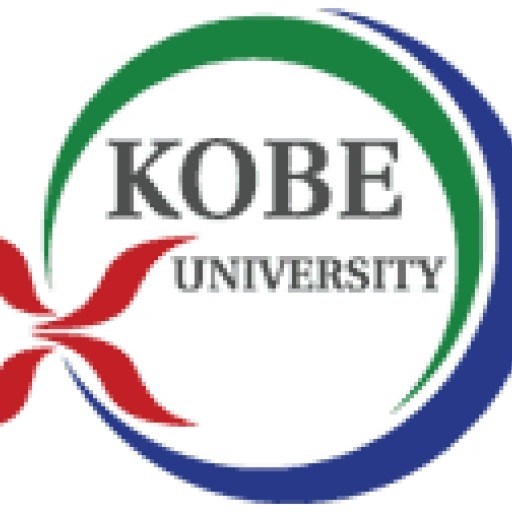The Master’s degree programme in Eco-engineering at Bialystok University of Technology is designed to prepare graduates to address the complex challenges of sustainable development and environmental protection through innovative engineering solutions. The programme combines advanced knowledge in environmental sciences, engineering principles, and technological innovation to equip students with the skills necessary to design, implement, and monitor eco-friendly systems. Students will engage with topics such as renewable energy sources, waste management, water treatment technologies, ecological infrastructure, and the reduction of environmental impact in various industrial processes.
The curriculum emphasizes a multidisciplinary approach, integrating aspects of civil, mechanical, chemical, and environmental engineering, fostering a comprehensive understanding of eco-engineering concepts. It includes theoretical coursework, practical laboratory work, field studies, and project-based learning, encouraging students to apply their knowledge to real-world problems. The programme aims to develop competencies in environmental assessment, sustainable design, and the use of modern software tools for modeling and simulation.
Throughout their studies, students will collaborate with industry partners and participate in internships that provide valuable hands-on experience. The programme also emphasizes research skills, preparing graduates to contribute to innovative projects or pursue doctoral studies. Graduates of Eco-engineering will be well-equipped to work in sectors such as environmental consultancy, renewable energy, urban planning, manufacturing, and governmental agencies dedicated to environmental protection.
The curriculum is regularly updated to reflect the latest technological advancements, legal regulations, and environmental challenges. Upon completing the programme, graduates will receive a Master’s degree and be prepared to contribute meaningfully to creating sustainable solutions that protect natural resources, improve quality of life, and support the transition to a green economy. The programme’s dedicated faculty comprises experienced researchers and practitioners committed to excellence in teaching and research, ensuring students gain not only expert knowledge but also critical thinking and problem-solving abilities essential for modern eco-engineering careers.
The program in Eco-engineering at Bialystok University of Technology is designed to provide students with comprehensive knowledge and practical skills necessary for addressing environmental challenges through sustainable and innovative engineering solutions. Admission requirements typically include a completed secondary education, such as a high school diploma, with a strong emphasis on proficiency in mathematics and natural sciences like physics and chemistry. Applicants are often required to submit proof of language proficiency in English, such as IELTS or TOEFL scores, to ensure they can engage effectively with the program's coursework and research activities conducted in English. Additionally, candidates may need to demonstrate an interest or background in environmental issues, engineering, or related fields through personal statements or motivation letters, which highlight their goals and suitability for the program.
Some admission procedures may also involve an interview or entrance exam to assess the applicant's analytical thinking, logical reasoning, and motivation for studying eco-engineering. International students are usually required to meet specific visa or residency requirements and may need to provide documentation translating their previous academic records into Polish or English. Applicants are encouraged to review specific deadlines and application processes posted by the university's admissions office to ensure timely submission of all required materials.
The program aims to cultivate multidisciplinary competencies, so students are encouraged to participate in internships, research projects, and extracurricular activities related to environmental protection, renewable energy, waste management, and sustainable development. Students are also advised to have good teamwork, communication skills, and a proactive attitude to thrive in both academic and practical environments. It is recommended that prospective students review the curriculum structure and requirements detailed on the university's official website or contact the admissions office directly for up-to-date and detailed information related to program prerequisites and entry procedures.
Want to improve your English level for admission?
Prepare for the program requirements with English Online by the British Council.
- ✔️ Flexible study schedule
- ✔️ Experienced teachers
- ✔️ Certificate upon completion
📘 Recommended for students with an IELTS level of 6.0 or below.
The financing of the Eco-engineering program at Bialystok University of Technology is structured to ensure accessibility and high-quality education for all enrolled students. Funding sources for the program primarily include tuition fees paid by students, which are set according to university policies and can vary depending on the student's nationality, residency status, and year of study. In addition to tuition, the program may benefit from government funding allocated to support environmental sciences and engineering disciplines, which helps subsidize certain aspects of the program such as laboratory equipment, research projects, and faculty development.
Research grants obtained through national and European Union funding programs play a significant role in financing applied research and innovation projects within the curriculum, enriching students' practical experience and fostering collaboration with industry partners. The university also offers scholarships and financial aid options designed to assist students with limited financial resources, including merit-based scholarships, needs-based aid, and targeted mobility grants for international exchanges. These financial supports are intended to promote equal opportunities and encourage talented students to pursue their studies without financial barriers.
Bialystok University of Technology actively seeks external sponsorships and partnerships with environmental firms and public institutions that may contribute financially to specific courses, internships, or environmental initiatives integrated into the Eco-engineering program. In addition, the university's strategic plans aim to diversify and increase funding sources over time to sustain program quality and expand educational and research activities.
Furthermore, students may have opportunities to participate in funding competitions for student projects, which can provide additional resources for innovative ideas that align with sustainable development and ecological engineering. The university’s supportive financial framework ensures that students enrolled in the Eco-engineering program can focus on acquiring knowledge and skills without undue financial strain, preparing them effectively for careers in environmentally sustainable engineering fields.
Eco-engineering at Bialystok University of Technology is an interdisciplinary field that focuses on the sustainable development and management of natural resources through innovative engineering solutions. The program is designed to equip students with comprehensive knowledge and practical skills in environmental protection, renewable energy sources, waste management, ecological infrastructure, and sustainable technologies. Students gain expertise in designing, implementing, and maintaining eco-friendly systems that minimize environmental impact while promoting economic efficiency. The curriculum often combines theoretical courses in environmental science, ecology, and engineering principles with laboratory work, field studies, and project-based learning. This approach prepares graduates to address pressing environmental challenges such as climate change, pollution control, and resource depletion. The program also emphasizes the importance of interdisciplinary cooperation, aiming to develop professionals capable of integrating ecological concepts into engineering practices across various sectors. Graduates of Eco-engineering are prepared for careers in environmental consulting, sustainable urban planning, renewable energy projects, and environmental policy development. The university collaborates with industry partners and research institutions to ensure that the curriculum remains aligned with current technological advancements and market needs. Practical training is typically supplemented by internships and involvement in research projects, which provide real-world experience. The program may be offered as full-time studies, with options for part-time or evening courses to accommodate working professionals. Graduates are expected to contribute to the sustainable development goals by promoting environmentally responsible solutions in their respective fields. The faculty involved in Eco-engineering at Bialystok University of Technology includes experts in environmental sciences, civil engineering, mechanical engineering, and applied ecology, fostering a multidisciplinary learning environment. The scope of the program extends beyond technical training to include aspects of environmental law, economics, and social considerations essential for creating effective and sustainable environmental solutions. This program reflects the university's commitment to fostering innovative green technologies and supporting Poland’s transition towards a more sustainable future.







